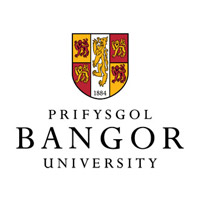fees waived
Diagnostic Radiography, BSc (Hons)
Bangor University, United Kingdom
Subject ranking
UK / Guardian 48th
UK / The Times 112th
UK / CUG 131st
Costs
food & rentS$15.4K / year
Entry requirements
Scholarships
Unlimited quantity
Unlimited quantity
Unlimited quantity
Unlimited quantity
Unlimited quantity
Limited quantity
Information
Code
Code
Intakes
Website (External)
Programmes
Information
Duration
2027
Diagnostic radiography is an invaluable aid in the diagnosis of disease. Diagnostic radiographers are responsible for the production of images involving the use of X-rays and other methods including ultrasound, computed tomography (CT), radionuclide imaging (RNI) and magnetic resonance imaging (MRI). You will learn not only about how x-rays are produced and the anatomy of the human body, but also how to talk to people and what sort of things patients/service users may be concerned about.Radiography is one of the professions allied to medicine. Diagnostic radiography is an invaluable aid in the diagnosis of disease. As a diagnostic radiographer you’ll be responsible for the production of images involving the use of X-rays and other methods including ultrasound, computed tomography (CT), radionuclide imaging (RNI) and magnetic resonance imaging (MRI). Radiographers comment on image appearances for referrers after an examination is completed; they can also issue full reports after specialist postgraduate training. At postgraduate level they may develop their roles to include reporting on images, educating student radiographers, postgraduate training of radiographers or carrying out fluoroscopic, angiographic and endoscopic procedures. As a radiographer you’ll work in many areas in a hospital, in addition to the imaging department, including A&E, operating theatres and on hospital wards and the work placement settings on this degree will reflect that variety.Bangor accepts applications for Diagnostic Radiography throughout the year, while places are still available. However early applications are strongly encouraged as radiography does usually fill all its places well before the end of the admissions cycle each year.If you are considered a home UK student for tuition fees who can commit to working in Wales for two years after graduating, you could get your tuition fees covered in full through the NHS Wales Bursary Scheme and claim for a £1,000 bursary contribution towards living costs. You can also apply for the means tested bursary that is dependent on household income and other funding that has eligibility criteria for child care support, dependents allowance and parental learner allowance. You can also apply for the income based maintenance funding and a reduced rate loan from Student Finance. As this course is funded by NHS Wales, we are unable to accept applications from overseas students. The taught elements of this course are delivered at Bangor University’s Wrexham Campus next to Wrexham Maelor Hospital.
A local representative of Bangor University in Singapore is available online to assist you with enquiries about this course.

